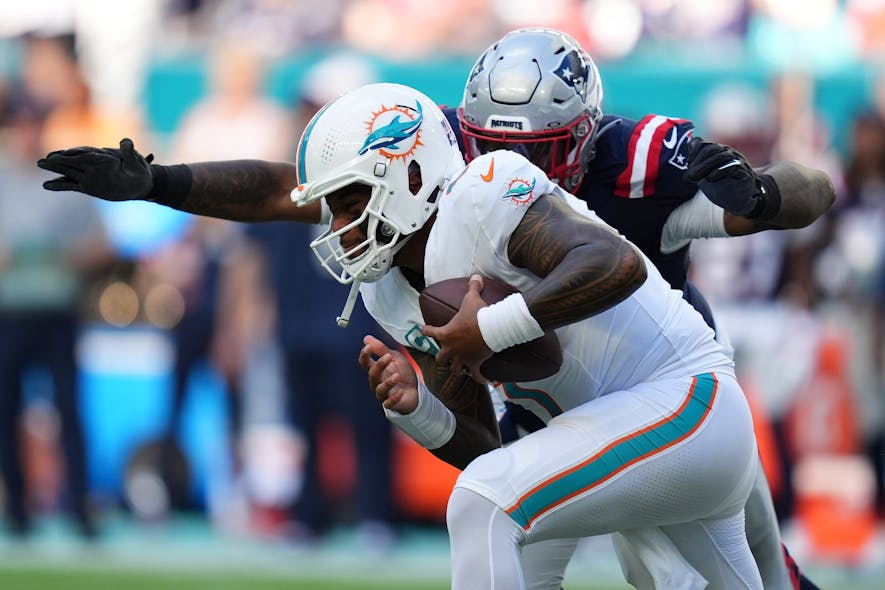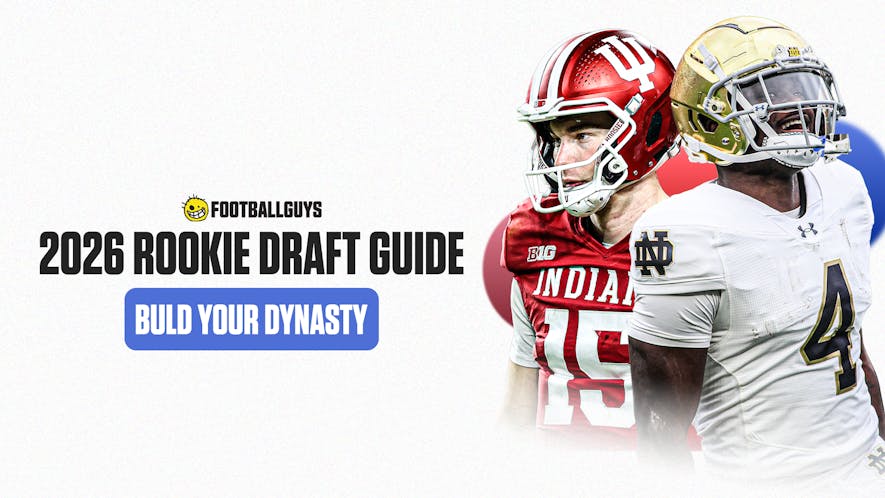A good sports betting column should be backed by a profitable gambler with a proven track record. It should offer picks generated by a sophisticated and conceptually sound model. Most importantly, it should treat the subject with the seriousness it warrants.
This is not that column.
Instead, this will be an off-beat look at the sports betting industry-- why Vegas keeps winning, why gambling advice is almost certainly not worth the money, and the structural reasons why even if a bettor were profitable, anything they wrote would be unlikely to make their readers net profitable, too.
While we're at it, we'll discuss ways to minimize Vegas' edge and make recreational betting more fun, explain how to gain an advantage in your office pick pools, preview games through an offbeat lens (with picks guaranteed to be no worse than chance), and tackle various other Odds and Ends along the way.
Tracking the Unders
In 2022 and 2023, mass-betting the unders was incredibly profitable over the first 6 weeks and essentially just broke even after that. I hypothesized this year that maybe all we needed to do to make a killing was to start our "mass-bet the unders" strategy earlier in the season.
That hypothesis... has not played out according to plan. Unders went 3-10 last week, the worst showing in our three years tracking the bet (marginally worse than the 3-10-1 performance in Week 6 and the 4-12 record in Week 8). Anyone mass-betting the unders would have lost 56% of the amount wagered; at $10 per bet, that'd be $72.73.
I mentioned last week that the "Snowball strategy" had been decimated, but was now reaching the point where it didn't have any money left to lose. Because of that, the "equal bet on all games" approach finally saw its losses surpass the snowball approach-- $187.27 vs. $142.62 (assuming you saw all the same lines I saw and got all action at -110).
Let's Talk About Narratives
For most people, betting on football is an act of storytelling. We craft a narrative to explain an outcome and then bet that outcome. I like to lampshade this by picking a preferred narrative every season as a lens through which I analyze the matchups.
Two years ago, I tracked "revenge games", positing that a given team might be more likely to win because their fourth receiver was facing the team that cut him half a decade ago. Last year, I picked Super Bowl* Rematch(es), hypothesizing that the outcomes of games from 40 years ago provide extra motivation to players who weren't even born at the time. This year, I've doubled down on coaching cliches and tried to quantify things like Who Wants It More(tm).
These are bad narratives. (Some more obviously bad than others; plenty of bettors genuinely believe in and bet based on revenge narratives, though I don't think anyone else out there is making picks informed by the fact that Earl Morrall once threw three interceptions on 17 attempts against the Jets in 1969.)
But there's nothing wrong with that; nearing the end of our third year, our narrative picks have gone 47-43-2. I know I joke a lot about just lying to make things look better and trusting that no one will bother to fact-check, but that's the genuine record. Factoring in the vig, it's technically a losing record, though only barely-- if you'd bet $10 on all of our narrative picks (and saw all the same lines I saw, and got all action at -110), you'd have gotten nearly 50 weeks worth of rooting interests at a net loss of $2.73-- or about a quarter the cost of one banana.
You're not losing money by betting on games based on half-century-old storylines. (At least, no more money than you'd likely be losing betting on games based on any other factors.) The flip side of the fact that there are no good narratives to inform your betting habits is that there are no bad narratives to inform your betting habits, either.
The problem is that while I'm honest with you and will tell you that all narratives are basically 50/50 bets, others aren't quite as above the board. If you read a lot of gambling columns, you'll hear about things like line movement or reverse line movement ("when the line moves in the direction of one team, bet the other"). You'll hear that all of the "sharp money" (the so-called profitable bettors) are on one side of a bet, and you should get on that side, too. You'll hear about Team X's record against the spread in its last eight primetime games, or Team Y's record against the spread when the temperature is below 40 degrees, or Team Z's record against the spread against teams coming off of games on Thursday Night.
These are all narratives, and they're all bunk. None of them are any more likely to return a profit than our unique, almost-patented formula of picking games based on who was good when your grandparents were kids or who's Got That Dawg In Them(tm).
(For starters, the idea that the majority of the sharp money is ever on one side of a contest is just objectively wrong. The amount of "sharp money" on any given game pales in comparison to the amount of "sharp money" sitting on the sidelines, waiting to punish the sportsbooks if they ever publish a bad line. If the books move a good line because they're getting a lot of "square money" on one side, the result wouldn't be a perfectly offsetting amount of "sharp money" on the other side to balance their risk; it would be a veritable flood of "sharp money" coming in trying to make an easier buck. The lines are always good because the consequence of bad lines is untenable.)
Just because they're not true doesn't mean "square money" or "reverse line movement" or "performance in last five road games with temperatures below 43 degrees at kickoff" are bad narratives to bet on. The narratives the other guys are pushing are no better or worse than the narratives I'm pushing. If you want to bet against Team Y in cold weather or Team X in primetime, go for it. It's a 50/50 shot. If you want to bet in favor of them to be contrarian, go for that, too. It's still a 50/50 shot. The fact that these narratives are uncorrelated with reality means they won't help you, but they won't hurt you, either. For most of us, betting is just the act of searching for whichever story we find most compelling.
Carl Sagan once wrote, "For me, it is far better to grasp the Universe as it really is than to persist in delusion, however satisfying and reassuring." Personally, I don't mind a bit of satisfying delusion (I operate this entire column under the premise that I'm being rather clever here), but I figure since it's your money at risk, you should probably know the truth.


